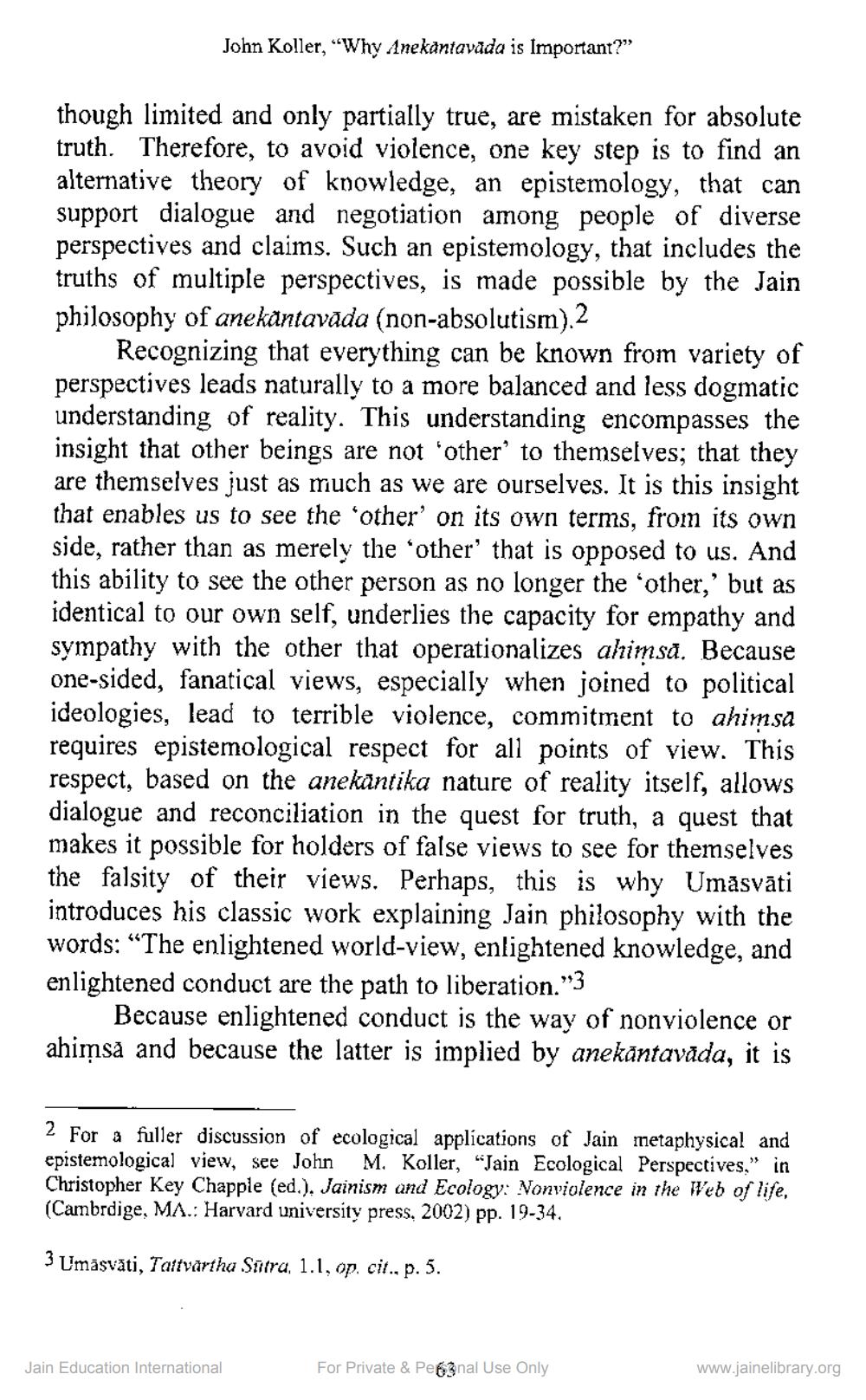Book Title: Why is Anekantavada Important Author(s): John M Koller Publisher: Z_Lessons_of_Ahimsa_and_Anekanta_for_Contemporary_Life_014006.pdf View full book textPage 2
________________ John Koller, "Why Anekantavada is Important?” though limited and only partially true, are mistaken for absolute truth. Therefore, to avoid violence, one key step is to find an alternative theory of knowledge, an epistemology, that can support dialogue and negotiation among people of diverse perspectives and claims. Such an epistemology, that includes the truths of multiple perspectives, is made possible by the Jain philosophy of anekantavada (non-absolutism).2 Recognizing that everything can be known from variety of perspectives leads naturally to a more balanced and less dogmatic understanding of reality. This understanding encompasses the insight that other beings are not 'other to themselves, that they are themselves just as much as we are ourselves. It is this insight that enables us to see the 'other' on its own terms, from its own side, rather than as merely the 'other' that is opposed to us. And this ability to see the other person as no longer the 'other,' but as identical to our own self, underlies the capacity for empathy and sympathy with the other that operationalizes alimsa. Because one-sided, fanatical views, especially when joined to political ideologies, lead to terrible violence, commitment to ahimsa requires epistemological respect for all points of view. This respect, based on the anekāntika nature of reality itself, allows dialogue and reconciliation in the quest for truth, a quest that makes it possible for holders of false views to see for themselves the falsity of their views. Perhaps, this is why Umāsvāti introduces his classic work explaining Jain philosophy with the words: “The enlightened world-view, enlightened knowledge, and enlightened conduct are the path to liberation."3 Because enlightened conduct is the way of nonviolence or ahimsa and because the latter is implied by anekantavāda, it is 2 For a fuller discussion of ecological applications of Jain metaphysical and epistemological view, see John M. Koller, "Jain Ecological Perspectives," in Christopher Key Chapple (ed.). Jainism and Ecology: Nonviolence in the Web of life, (Cambrdige, MA.. Harvard university press, 2002) pp. 19-34. 3 Umāsvāti, Taitvartha Satra, 1.1, op. cit., p. 5. Jain Education International For Private & Pe63nal Use Only www.jainelibrary.orgPage Navigation
1 2 3 4 5 6 7 8 9 10 11
